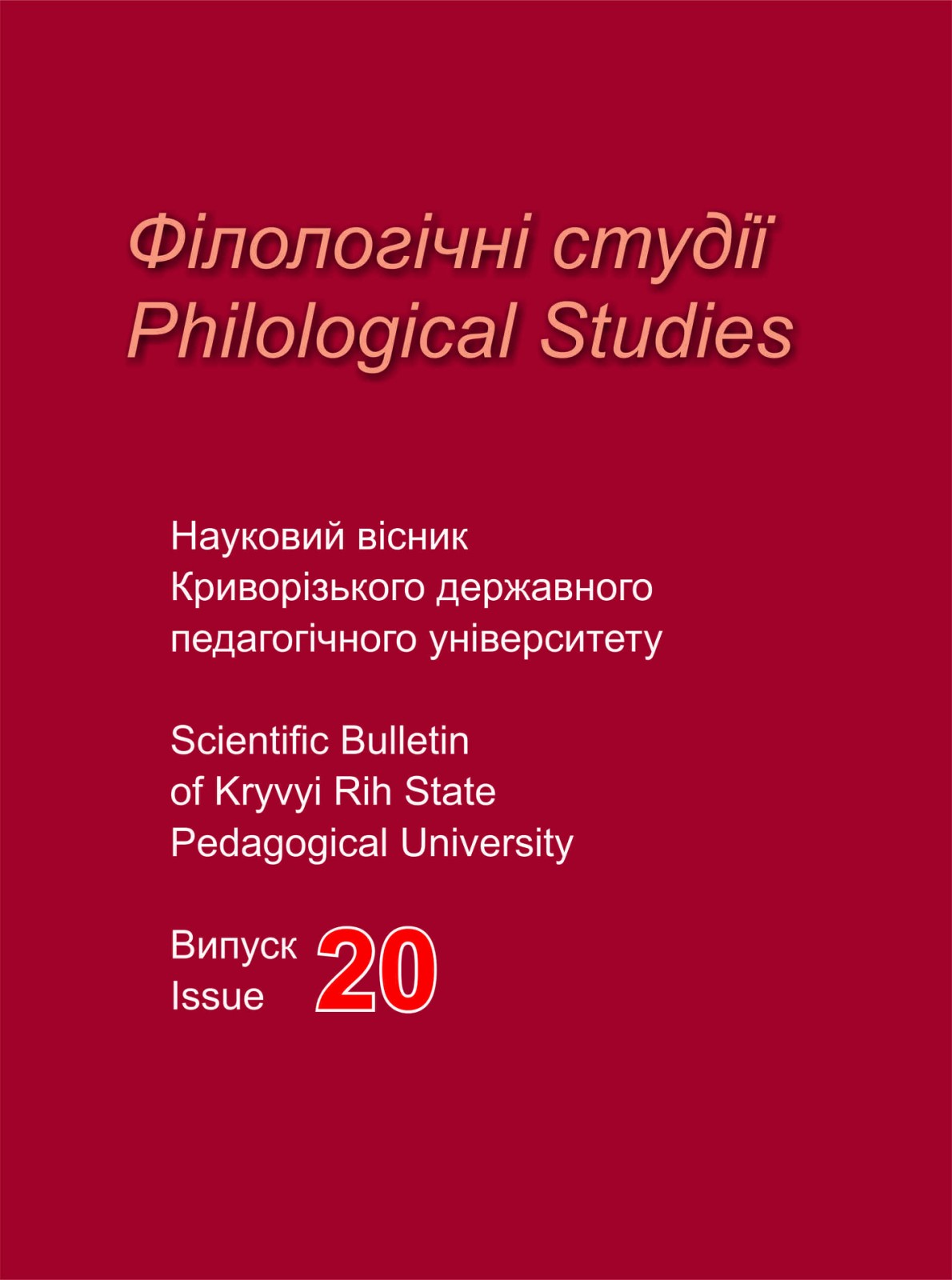“Dialogue game”: the author's intention in Ukrainian prose of the 1920 years
DOI:
https://doi.org/10.31812/filstd.v20i0.3697Keywords:
dialogue, author’s intention, reader, creative laboratory, сonstruction, ironyAbstract
In the article the problem of the text interpretation in the aspect of “play in dialogue”, the author-reader relationship on the basis of the Ukrainian prose of the 1920 years is outlined. It is pointed that the prose of this period declared experimentation in the principles of text construction and play as dialogue “author – character – reader”.The main attention is drawn to the author's intention, which makes the reader to “create” new text and defines the narrative style of the works.
It is clarified that avant-garde writers – D. Buzko, L. Skrypnyk, Geo Shkurupii, Y. Yanovskyi refuse to work with established forms and stamps, creating their laboratory of prose writing, the product of which is an author's novel form – a novel of a new construction, a destructive novel, a novel-memoirs, a film-novel. The author's genre definitions are focusing not so much on the plot, but on the narrative, the formal elements, as visualizing the text. Questions of the author's laboratory of the theory of novel in avant-garde prose, the inspiration of the laws of writing craft, the exposition of literary technique, the freedom of artistic creativity are discussed.
In the novel “Holland” by D. Buzka, the play with the plots of known works, the dialogue with the reader, the exposition of the literary technique were used as the attempt to parody the traditional novel structure. The biographical component of the novels by Y. Yanovskyi, L. Skrypnyk, Mykola Khvylovyi allowed the writers to embody the author's intention in the structure of the artistic narrative in the field of art, to strengthen the realization of the embodiment of the creative process in the literary work. Modeling the way of the text deliverance, the avant-garde writers used the play, irony, exposure of literary technique, playful flirting with the reader. “Constructive dialogue” with the reader did not allow the authors to embody their creative plan, because it was not considered as equal communication, in fact it was so called “dialogue game”.
Metrics
References
Агеєва В. Поетика парадокса: Інтелектуальна проза Віктора Петрова-Домонтовича: монографія. Київ : Факт, 2006. 432 с.
Агеєва В. Романний експеримент Юрія Яновського. Патетичний фрегат: Роман Юрія Яновського “Майстер корабля” як літературна містифікація. Київ : Факт, 2002. С.300–310.
Бузько Д. Чайка. Голяндія. Київ : Дніпро, 1991. 392 с.
Гадамер Х.-Г. Истина и метод: Основы философской герменевтики:пер. с нем./общ. ред. и вступ. ст. Б.Н. Бессонова. Москва : Прогресс, 1988. 704 с.
Голубєва З. Український радянський роман 20-х років: монографія. Харків: Вид-во Харківського ун-ту, 1967. 217 с.
Йогансен М. Як будується оповідання: Аналіза прозових зразків. Харків : Книгоспілка, 1928. 145 с.
Любченко А. Вертеп. Краків : Українське вид-во, 1943. 165 с.
Пуніна О. Кінофікація українського літературного дискурсу (20-30-ті роки ХХ століття) : монографія. Донецьк : ДонНУ, 2012. 332 с.
Яновський Ю. Майстер корабля. Патетичний фрегат: Роман Юрія Яновського “Майстер корабля” як літературна містифікація. Київ : Факт, 2002. С.11–176.
Яусс Х.-Р. К проблеме диалогического понимания / перевод с нем. Е.А. Богатыревой. Вопросы философии.1994. No 12. С. 97–106.






